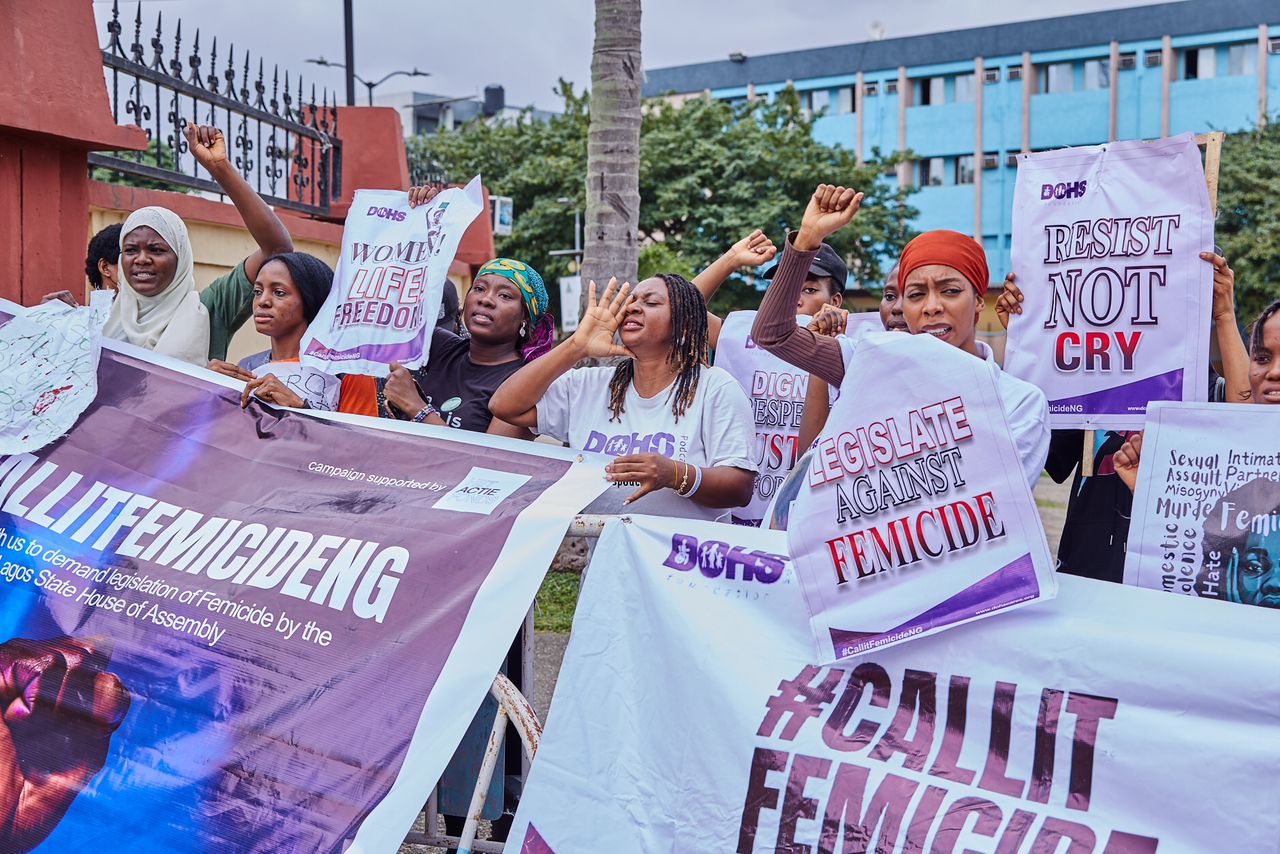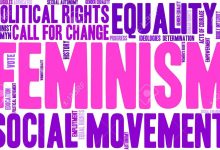
|
Getting your Trinity Audio player ready...
|
In a relentless effort to make misogyny a crime in Nigeria, the DOHS Cares Foundation, joined by feminists in the state, urged lawmakers to pass a bill against femicide. The protest, which took place at the Lagos State House of Assembly on August 30, 2024, was after the launch of a live femicide dashboard revealing that men have killed 46 women and girls they know within the first half of 2024.
Recall that in April 2024, DOHS Foundation Cares marched to demand Legislation on femicide, submitted a draft of a bill on femicide to the House, and wrote a letter to the Speaker of the House, Mudashiru Obasa, for a law to be made against the male violence against women.
However, Omolara Oyekan-Olumegbon, the lawmaker representing the Lagos Island 1 Constituency and chairperson of the House Committee on Women Affairs, Poverty Alleviation and Job Creation, responded to the letter that Lagos State already has a law against murder, with the Lagos State Domestic and Sexual Violence Agency overseeing its implementation.
“It is opined that the Domestic and Sexual Violence Agency law is also sufficient to cover incidences of Femicide against women and girls,” the lawmaker said.
The response necessitated the march organised by DOHS and sponsored by Het Actiefonds to educate the lawmakers on what femicide is, the experiences and victims of femicide, and why it must be uniquely recognised.
Speaking at the demonstration, the founder of DOHS Cares Foundation, Ololade Ajayi, emphasised that although femicide is murder, it must be recognised as a form of gender-based violence with a law emphasising it.
“The personal is political,” said Ololade, “We must turn femicide in Nigeria into political statements and take femicide from the home to the street; we must name it and grieve these lives stolen by patriarchal violence.”
The statistical framework for measuring gender-related killings defines femicide as men intentionally killing women and girls because of their sex class. It is also primarily done by men who are either their intimate partner or relative and acquaintance.
During the protest, Nigerian feminists, including volunteers and partners of the DOHS Foundation, chanted, “#CallItFemicide, we don’t want to die, so call it femicide.”
Responding to some of the males on the scene, including lawmakers who claim that women violently murder men too, Simbiat Bakare, Founder of Naija Feminists Media, enlightened the group that women do not disproportionately murder men and boys.
“Femicide is a serious issue that should not be made light of or derailed with ‘men are murdered too,’” Simbiat said. “Majority of men are murdered by men. At the same time, the majority of women are murdered also by men. Males intentionally killing women is a pandemic that the law must recognise and pass legislation against.”
On September 5, 2024, Ayomide Adeleye murdered Christianah Idowu, making her the 76th victim of femicide in Lagos State. Male violence against women is entrenched in various forms of prejudicial mindset, including stereotyped gender roles, discrimination towards women and girls, inequality and unequal power relations between women and men in society.
The Lagos state lawmakers who attended to protesters promised to discuss the concerns with the House towards passing a bill to make a law against femicide in the state.
“We have heard your concerns.” Mr Abiodun Tobun, the lawmaker representing Epe Constituency 1, said. “We have to do the first reading, then the second reading, so these things take time, but rest assured, we will deliver your message to the speaker.”






